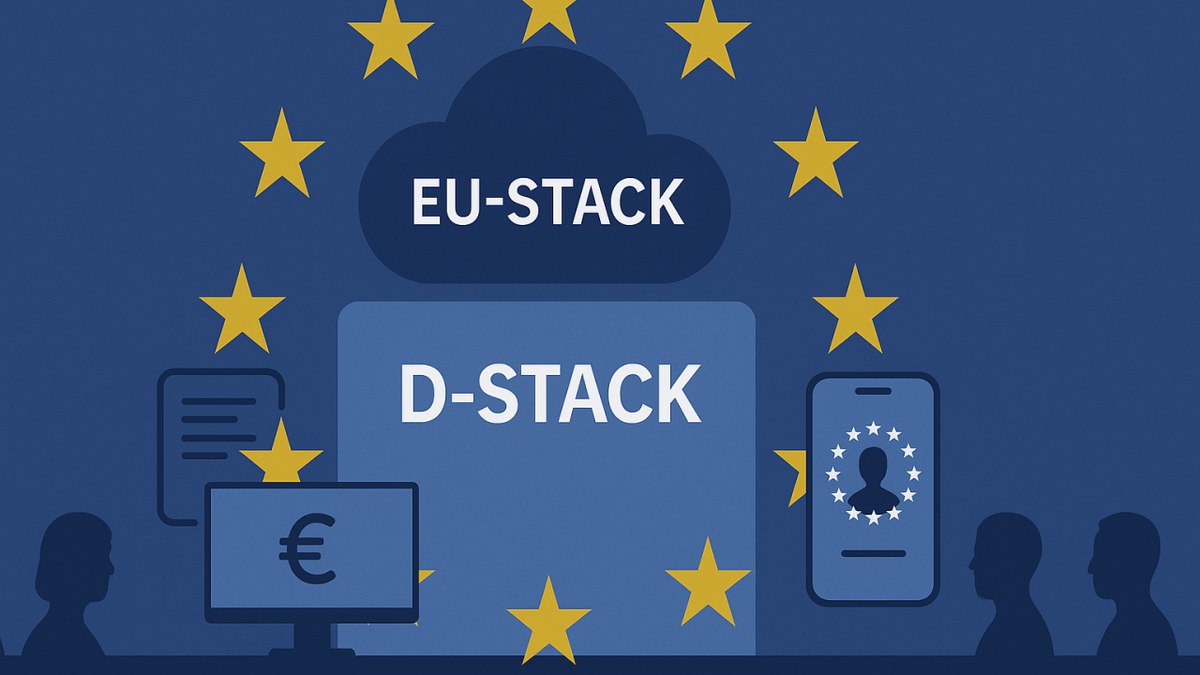
By Elke Porter | Westcoast German News | November 4, 2025
Subscription to WBN and being a Writer is FREE!
Karsten Wildberger surveyed his new office at Englische Straße 30 in Berlin-Charlottenburg, the headquarters of Germany's freshly established Federal Ministry for Digital Transformation and Government Modernisation. Appointed in May 2025 as the country's first dedicated federal minister for digital affairs, the former CEO of Ceconomy AG—parent company of MediaMarkt and Saturn—oversees a team drawing expertise from six ministries and the Federal Chancellery. The ministry now coordinates federal cybersecurity, digital identity systems, and online public services like e-government portals.
This centralization addresses a longstanding inefficiency. Germany operates more than 7,500 fragmented IT systems across federal, state, and local levels, many incompatible and reliant on outdated technology. Local offices in rural areas continue to process applications on paper, exacerbating delays. Over the past decade, uncoordinated initiatives under the Digital Strategy 2025 have yielded uneven progress, leaving the public sector lagging behind private-sector standards.
At a July 2025 conference in Berlin, Wildberger voiced his priorities: accelerating implementation while fostering collaboration across government layers. "Digitalization demands time, courage, expertise, patience, and partners," he echoed in a May Bundestag address, drawing from his private-sector experience where execution trumps endless deliberation.
Challenges persist. Telecommunications providers like Deutsche Telekom hesitate to invest in rural fiber-optic networks due to low profitability, with coverage reaching only about 30% of households as of 2024—short of the government's 50% target for 2025. Germany's stringent data protection regime under the GDPR and national laws, while fostering public trust, has slowed innovation by imposing rigorous compliance burdens on startups and agencies.
Meanwhile, international approaches vary. In Canada, Prime Minister Mark Carney appointed journalist-turned-politician Evan Solomon as Minister of Artificial Intelligence and Digital Innovation in May 2025, a standalone role complementing Industry Minister Mélanie Joly's portfolio. Solomon's mandate includes an AI Strategy Task Force to boost commercialization and ethical adoption.
The United States, under President Donald Trump, disperses oversight: Michael Kratsios directs the Office of Science and Technology Policy, focusing on a "promote and protect" strategy for emerging tech; Sriram Krishnan serves as Senior Policy Advisor for AI; and David Sacks acts as White House AI and Crypto Czar, chairing the President's Council of Advisors on Science and Technology to counter global rivals like China. This decentralized model emphasizes private-sector innovation over unified control.
Wildberger grapples with a core tension: Centralizing digital authority boosts efficiency but risks overreach in a federal system where states and localities guard autonomy. AI could streamline permit approvals or benefits processing, yet algorithmic biases demand safeguards. Quantum encryption promises secure data flows but could enable expansive monitoring if unchecked. Tools like these amplify both progress and peril.The stakes are economic as well as structural. A modernized administration could attract foreign investment and cut bureaucratic costs, vital as Germany eyes 3.5% GDP R&D spending by 2030. Yet civil servants worry about job losses from automation, citizens about data breaches, and states about federal mandates eroding local control.
Wildberger's ministry holds veto rights over major federal IT projects—excluding defense and security—granting unprecedented sway to enforce interoperability. As evening falls over Berlin, he advances the "Deutschland Stack," an open, federated architecture for sovereign digital infrastructure: modular platforms processing data locally across federal layers, inspired by encrypted protocols to enable secure, decentralized verification—such as for digital IDs—without central silos. Complementing this, coalition talks include FDP proposals for constitutional amendments to enhance federal-state digital coordination, alongside EU-aligned AI audits and privacy-by-design mandates.
These reforms aim not for speed alone but for balanced systems where efficiency and privacy reinforce each other. A trustworthy digital state could expand user adoption, lower long-term expenses, and bolster the democratic foundations of Europe's largest economy. In Wildberger's vision, Germany's government evolves not despite its federal roots, but through them—harnessing distributed innovation to build resilience in an AI-driven world.
Contact Elke Porter at:
Westcoast German Media
LinkedIn: Elke Porter or
WhatsApp: +1 604 828 8788.
Public Relations. Communications. Education
TAGS: #Digital Germany #Gov Tech #AI Digital #Federated Data #Deutschland Stack #Digital Transformation #WBN Ai #Elke Porter



